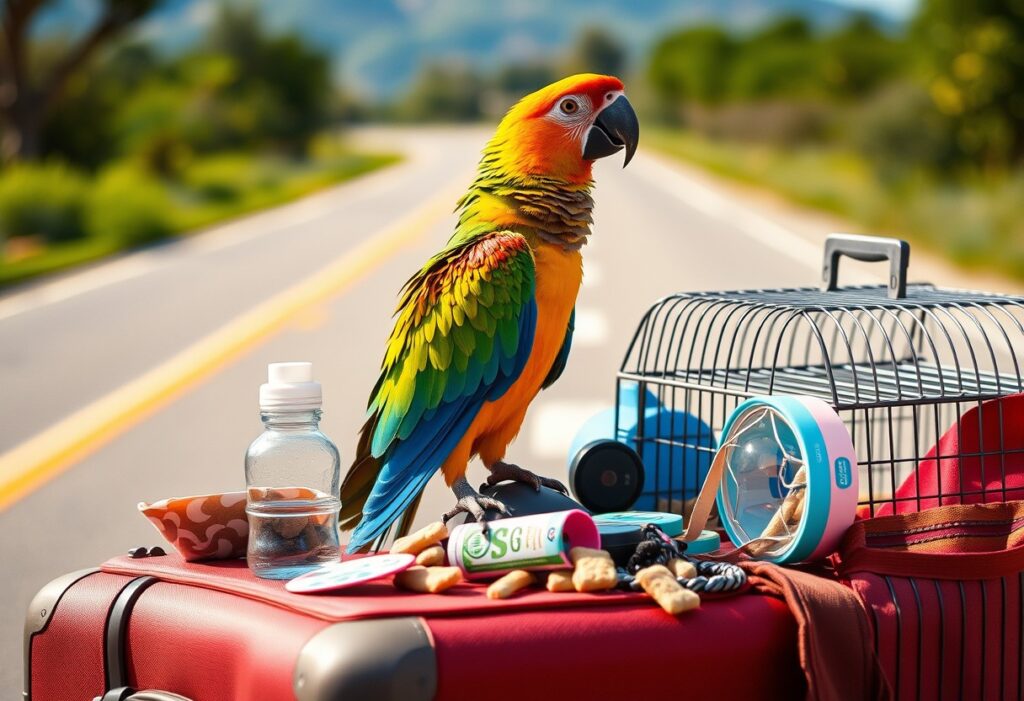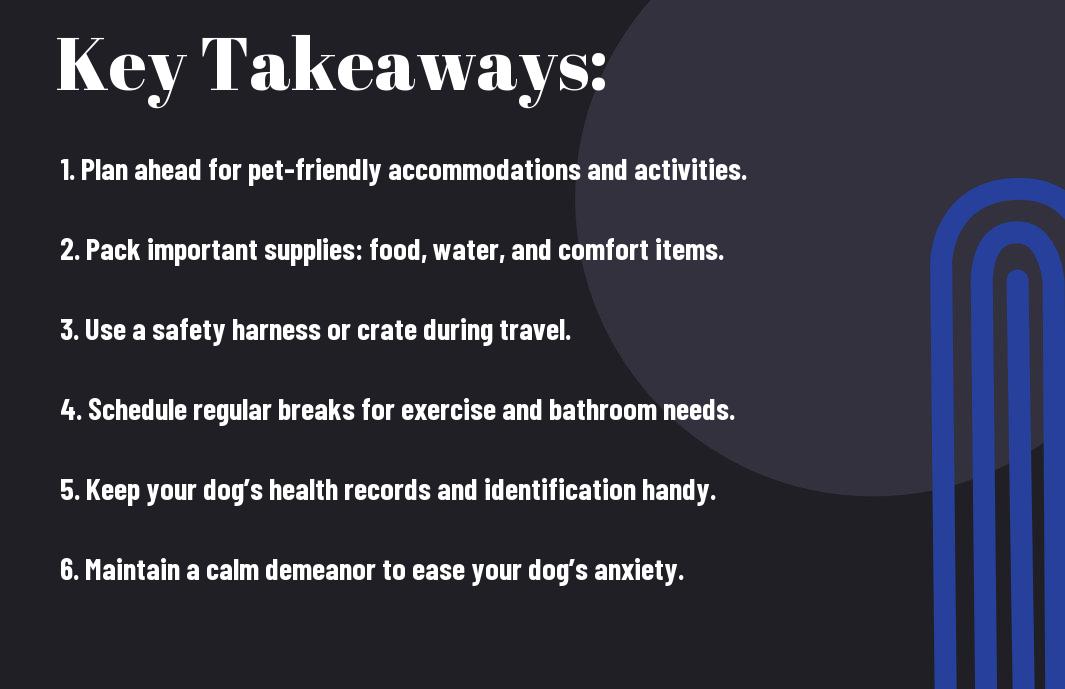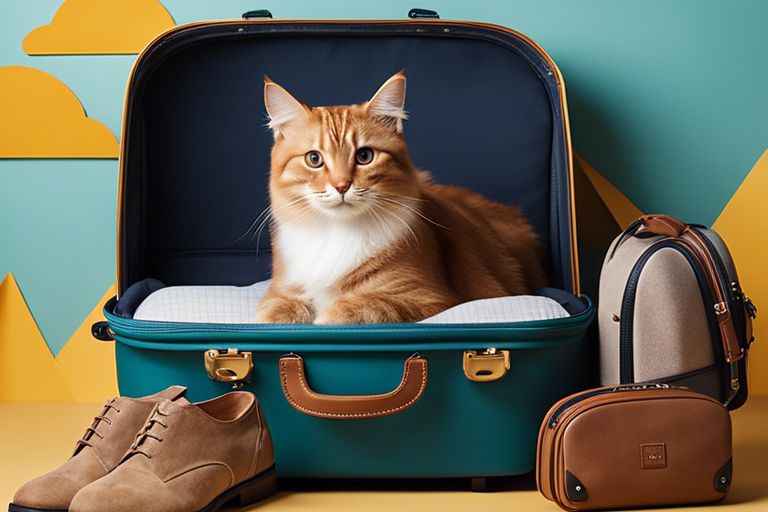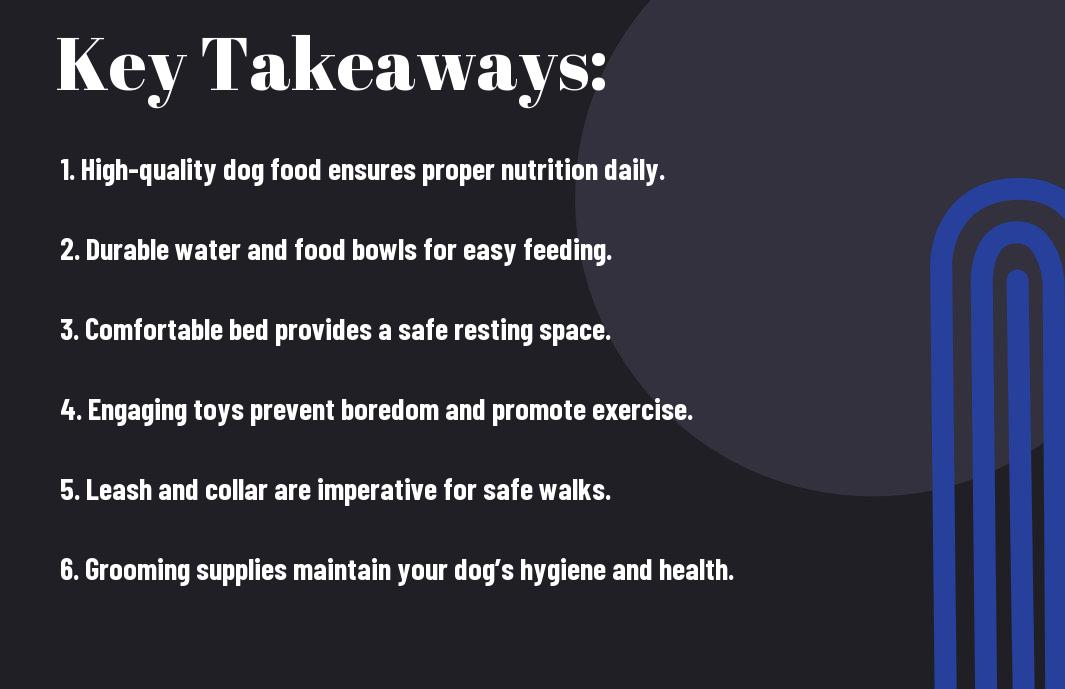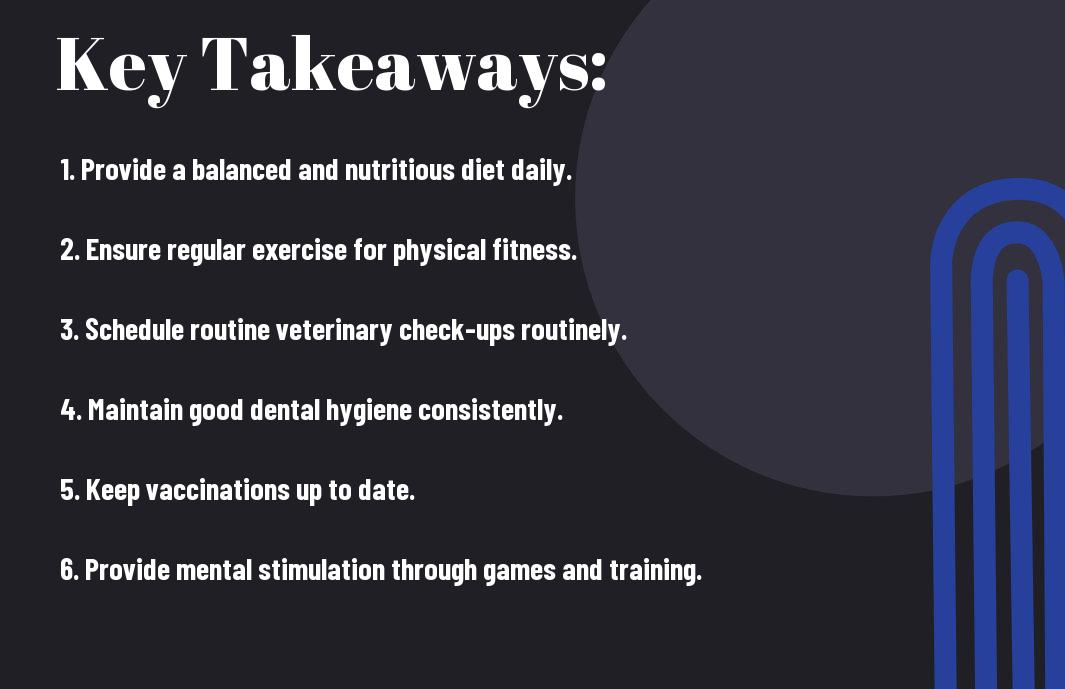Most pet bird owners face unique challenges when it comes to traveling with their feathered friends. Whether you’re commenceing on a cross-country road trip or a short flight, it’s crucial to prepare adequately to ensure your bird’s safety and comfort. This guide will provide you with important tips to create a stress-free environment for your pet during the journey, including packing the right supplies, choosing appropriate travel cages, and managing your bird’s routine. By paying attention to these important details, both you and your bird can enjoy an enriching travel experience.
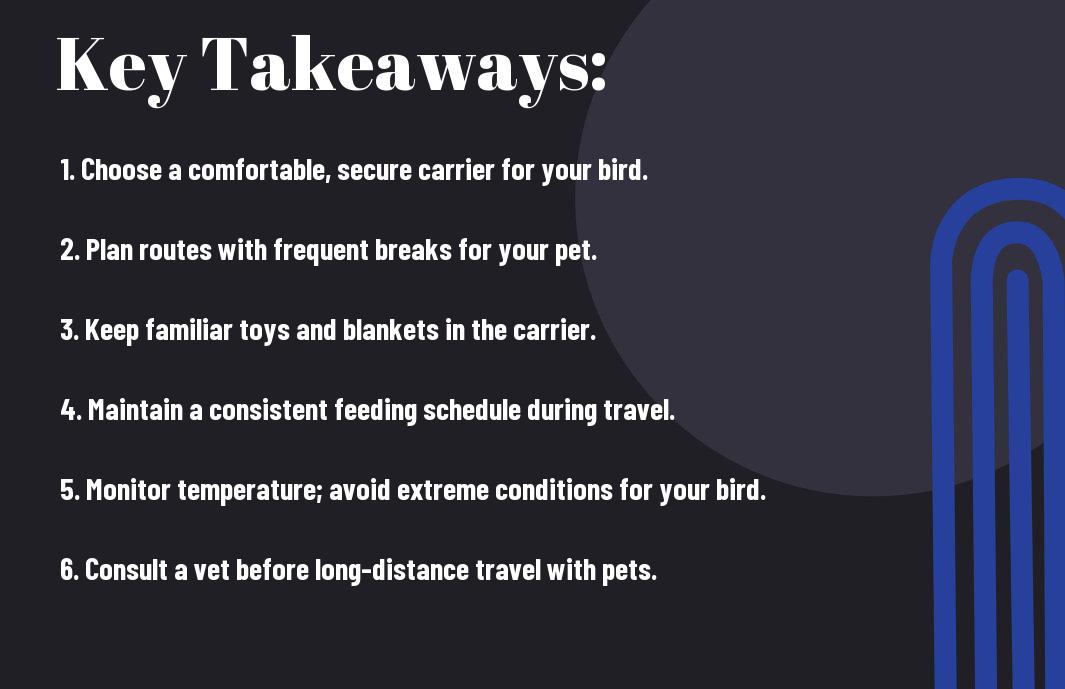
Preparing for Travel
While traveling with your pet bird can be a rewarding experience, it requires careful preparation to ensure a stress-free journey for both you and your feathered friend. You need to consider several key factors, starting with choosing the right carrier, packing necessary supplies, and addressing your bird’s health considerations prior to travel. Taking the time to prepare will help to alleviate any potential stress and create a positive environment for your bird during the trip.
Choosing the Right Carrier
Choosing a suitable carrier for your bird is crucial for a safe and comfortable journey. Look for a well-ventilated, sturdy carrier that provides enough space for your bird to move around while ensuring it feels secure. Opt for a carrier that can be easily opened and closed yet is escape-proof. Avoid wire cages, as they can be uncomfortable for long journeys and may pose a safety risk during travel.
Additionally, consider your bird’s size and species when selecting a carrier. Make sure it’s large enough to accommodate any perches or toys your bird likes, as mental stimulation can significantly reduce anxiety during travel. Lastly, remember that familiarity is necessary; if possible, allow your bird to acclimate to the carrier before the trip, so it feels safe and secure inside it.
Essential Supplies for the Journey
Right alongside the carrier, you’ll need to pack several necessary supplies to ensure your bird’s comfort and well-being during the trip. Bring along your bird’s regular food to avoid any dietary changes that might cause stress or digestion issues. It’s also wise to include fresh water, as staying hydrated is critical during travel. A portable water bottle or dish can also be useful for maintaining hydration on the go.
Another important item to include in your travel kit is your bird’s favorite toys or a blanket from their home environment, which can provide a sense of comfort and familiarity in an unfamiliar setting. Don’t forget a small first aid kit for any minor emergencies, as well as any medications your bird may need. Preparing these crucial supplies ensures your bird’s health and happiness throughout the journey.
Health Considerations and Vet Visits
Right before traveling, it’s advisable to schedule a visit with your veterinarian to ensure your bird is fit for travel. Your vet can perform a health check-up and provide you with any necessary vaccinations or medications, especially if you’re traveling to different states or countries where specific health regulations are in place. Discuss your travel plans with your vet, and ask for recommendations on how to manage your bird’s well-being during the trip.
For instance, if your bird has a pre-existing condition, your vet may offer specific advice on how to alleviate stress during travel or suggest a calming supplement. These precautions can make a significant difference, especially for birds that are generally more sensitive. Investing time and effort in addressing health considerations will lead to a more enjoyable travel experience.
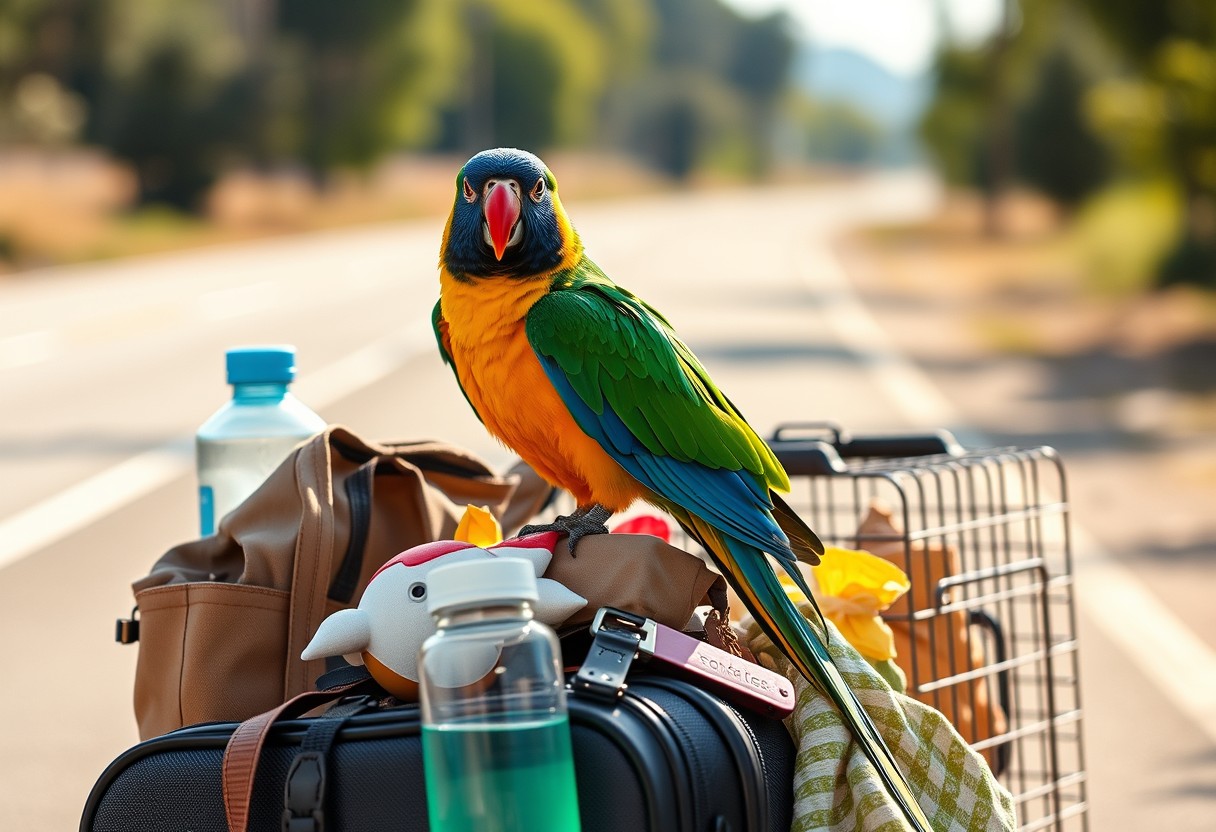
During the Journey
If you are begining on a trip with your feathered friend, it is vital to ensure that the journey is as smooth and stress-free as possible. Being in an unfamiliar environment can be overwhelming for your pet bird, and your goal should be to minimize anxiety and create a sense of security during travel.
Minimizing Stress for Your Bird
Birds thrive in familiar settings, so it’s important to establish a safe and comfortable space for your feathered companion during the journey. Bring their usual cage or a travel carrier that they are accustomed to, and add some of their favorite toys or blanket to create an environment that feels like home. Additionally, covering part of the carrier with a cloth can provide a sense of security and help to block out unexpected stimuli that may cause stress.
Whenever possible, try to maintain a calm atmosphere by speaking in a soothing voice and avoiding loud noises. Frequent breaks can also help to re-assure your bird. If your journey is long, consider taking short stops to allow your bird to stretch their wings for a few minutes and check in on their well-being. The more comfortable and secure your bird feels, the easier the trip will be for both of you.
Hydration and Feeding Tips
With any travel, ensuring that your bird stays properly hydrated and fed is crucial to their health and well-being. Before you leave, pack enough of their favorite food and water to last throughout the journey, as changes in diet can contribute to stress. Remember that your bird might not feel as inclined to drink water in a new environment, so you might need to encourage them. Consider bringing a small water container to ensure they have access to fresh water at all times.
- Offer your bird food and water during rest stops.
- Monitor your bird for any signs of dehydration, such as lethargy or fluffed feathers.
- Use a travel food dish that can easily be secured in the carrier.
Assume that your bird may not eat as regularly as they would at home; this is perfectly normal. Keep an eye on how much food they consume and offer treats that you know they enjoy to help alleviate any stress during the ride.
Safe Transport Practices
Feeding your feathered friend during the journey may be tricky, but it’s imperative to ensure their comfort and care along the way. Make sure that their carrier is well-ventilated to keep them cool and comfortable. Avoid any sudden movements or jerks while driving, as even small disturbances can cause stress. Your bird will feel more secure when the transport arrangements prioritize their safety.
During travel, never leave your bird unattended in a vehicle, as this can lead to dangerous situations such as overheating or other environmental hazards. Make sure that the temperature inside your vehicle is comfortable and avoid leaving windows open or allowing your bird to roam freely in the car, which can expose them to risks of injury or escape. Safety measures are best maintained throughout the journey for your bird’s peace of mind.
A proper travel cage with secured latches is critical to ensure your bird stays safely inside throughout the entire journey. Make sure that you regularly check that the carrier is intact and that your bird is not exposed to any direct drafts or intense sunrays. Additionally, ensure that there are no toxic materials nearby that may result in accidental ingestion. Creating a safe and secure space will give you the peace of mind you need to focus on the journey ahead.
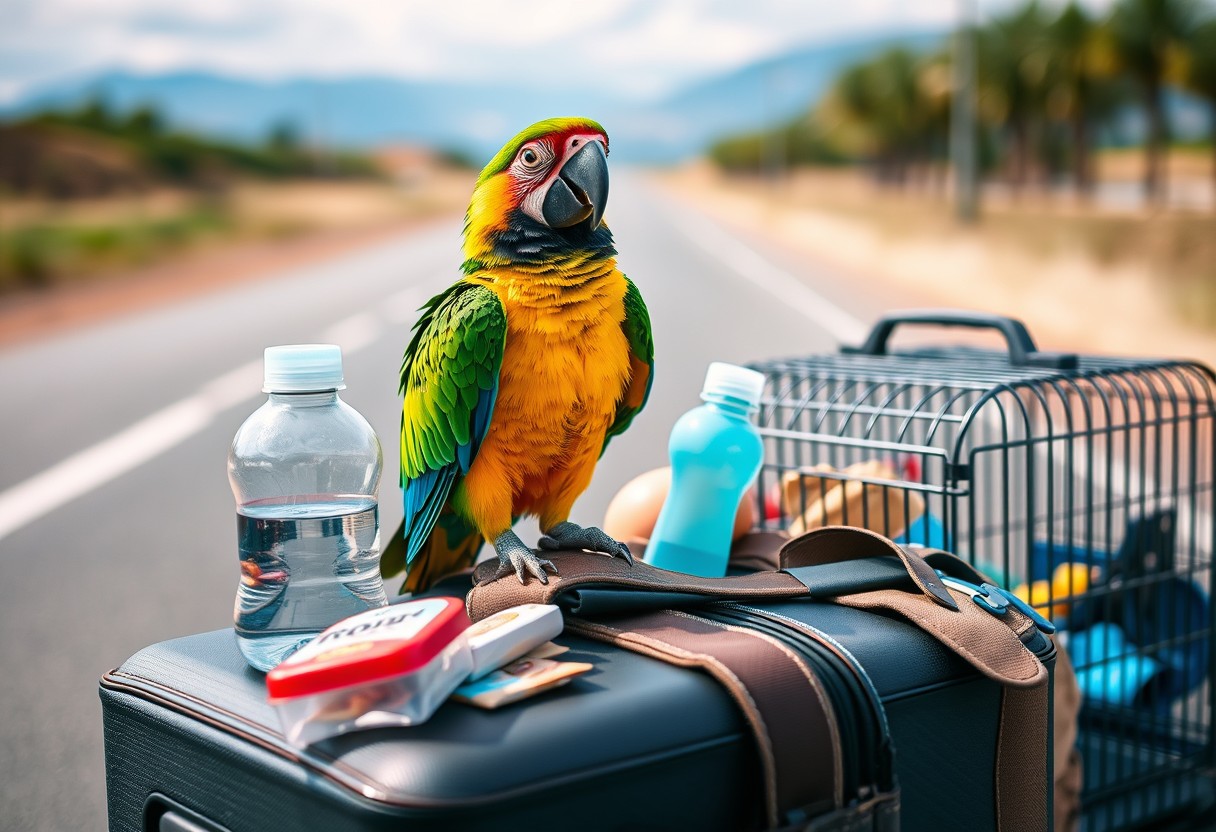
Destination Considerations
Now that you’ve decided to travel with your pet bird, you need to consider your destination carefully. Not all places are suitable for avian companions, and it’s necessary to do your research ahead of time. Look for locations that not only accommodate pets but also provide a safe and stress-free environment for your feathered friend. Ensure that the climate is appropriate for your bird’s species, as extreme temperatures can be hazardous. Additionally, consider whether your destination has access to avian veterinarians in case of emergencies.
Pet-Friendly Accommodations
To make your journey as smooth as possible, start by finding pet-friendly accommodations. Many hotels, lodges, and vacation rentals now cater to guests traveling with pets, but not all are equipped for birds specifically. Always call ahead to confirm that they allow pet birds, and inquire about any additional fees or specific rules that may pertain to your stay. When you settle into your chosen accommodation, check for spaces that will be safe for your bird, including avoiding overly crowded areas that could cause your pet stress.
Accommodations that offer sufficient space for your bird’s cage and provide a quiet atmosphere will be the most beneficial for you and your pet. Look for lodgings that have easy access to outdoor areas where you can safely ventilate your bird’s cage. Do not forget, your goal is to create an environment that keeps your bird calm and comfortable, reducing the potential for anxiety and stress during the trip.
Bird-Proofing Your New Environment
Your first order of business upon arrival should be bird-proofing your new environment. This means removing any potential hazards that could harm your pet. Start by inspecting the accommodation for open windows, dangerous houseplants, and accessible electrical cords. If your bird is accustomed to flying freely, you’ll need to ensure the space is safe for such activity as well. You may need to adjust furniture or make modifications to limit your bird’s access to risky areas.
Establishing a Routine
Considerations for your bird’s routine should also be at the forefront of your mind when traveling. Birds thrive on routine, and changes in their normal schedule can lead to stress. Establish a daily routine that includes feeding, exercise, and interaction times that closely mimic what they are used to at home. The more consistency you can create, the easier it will be for your bird to adapt to the new surroundings.
Destination changes can throw off your bird’s natural rhythm; thus, it’s crucial to stick to a schedule. Whether it’s setting specific times for play or making sure that meals are served at the same intervals, small regularities can make a big difference in maintaining your bird’s emotional well-being during your travels.
Conclusion
So, commenceing on a journey with your pet bird can be a delightful experience if you prepare adequately and take the right precautions. Remember to consider your bird’s temperament and needs, ensuring that you have a proper carrier, food, water, and familiar items to maintain their comfort. A thorough understanding of travel regulations and potential stops along the way will further ensure a smooth transition for both you and your feathered companion. Observing your bird’s behavior throughout the journey will allow you to adjust your approach if necessary, making the experience enjoyable and stress-free.
Ultimately, traveling with your pet bird can deepen the bond you share and create shared memories that last a lifetime. By planning ahead and being mindful of your bird’s needs, you will pave the way for a successful and enriching adventure. As you prepare for your next trip, keep these tips in mind, and remember that a little preparation goes a long way in ensuring that your time together is as enjoyable as possible.
Q: What should I consider before traveling with my pet bird?
A: Before begining on your journey, it’s crucial to evaluate whether your pet bird can handle the trip. Consider the distance and duration of the travel, as some birds may experience significant stress in unfamiliar environments. It’s also imperative to check the destination’s weather conditions, as certain species are sensitive to temperature changes. Ensure that your bird is in good health; consult with an avian veterinarian to assess if your bird is fit for travel. Additionally, research pet-friendly accommodations and transportation options that will cater to your bird’s needs.
Q: How can I prepare my pet bird for travel to minimize stress?
A: Preparation is key to reducing your bird’s anxiety during travel. Start by getting your bird accustomed to its travel carrier well in advance; allow it to explore the carrier at home, perhaps by placing treats inside. Ensure the carrier is secure and well-ventilated. Pack familiar items such as the bird’s favorite toys, blankets, or perches to create a comforting environment. Keep a consistent routine leading up to your travels to help your bird feel more secure. It’s also advisable to speak softly to your bird during travel and make frequent stops to check on its well-being, providing water and snacks as needed.
Q: What should I bring along for my pet bird during the journey?
A: Packing the right supplies is imperative for a smooth travel experience with your pet bird. Items to consider bringing include a suitable travel carrier lined with bedding for comfort, water and food bowls, enough bird food for the duration of the trip, and favorite toys to keep your pet entertained. You should also include cleaning supplies, such as paper towels or wipes, in case of messes. Additionally, bring any medications your bird may need, along with relevant health documentation like vaccination records, especially if you are traveling across state lines or internationally.
